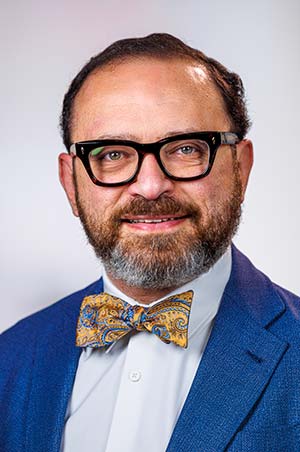Mohamed Sorror, MD, MSc
Professor
Clinical Research Division, Fred Hutch
Dr. Mohamed Sorror’s research is dedicated to improving the care of older, frailer or medically complicated patients with blood cancers. While most people with blood cancers are seniors, studies of new treatments for these diseases routinely exclude them. To solve this problem, Dr. Sorror is gathering evidence and developing decision-making tools to guide the choice of the best treatment for these patients. He leads a large, multi-center, randomized trial testing novel interventions, such as palliative care and dedicated management of individual comorbidities, for patients receiving stem cell transplants to treat blood cancers. Through both clinical and population-based studies, Dr. Sorror aims to optimize the benefits of health care to patients and to society. For example, he is testing, developing and validating methods and tools to predict patient outcomes on treatment, including survival, toxicity and quality of life. He is learning patients’ experiences, preferences and values for cancer treatment. And his trials are generating evidence of which interventions work best for which types of patients and under what circumstances. Notably, he and colleagues developed the first scoring system, now used worldwide, for predicting the risks a blood stem cell transplant poses for a particular patient.
Other Appointments & Affiliations
Affiliate Investigator, Translational Science and Therapeutics Division, Fred HutchAffiliate Investigator
Translational Science and Therapeutics Division, Fred Hutch
Associate Professor of Medicine
University of Washington
Education
MSc, Internal Medicine, Assiut University, Assiut, Egypt, 1998
MD, Medicine, Assiut University, Assiut, Egypt, 1993
Current Projects
Impact of Comorbidities and Age on Outcomes of Allogeneic Transplantation
Assessment of biomarkers for prognostic evaluation of transplant outcomes
Predictors of treatment-related mortality after autologous transplantation
Clinical and biological understanding of the roles of comorbidities in development of post-transplant complications
Tools and Information to Guide Choice of Therapies is Older & Medically Infirm Patients with AML
"For older patients, the time remaining is extremely precious — and their focus is on those fine details of enjoying life, on the time they spend with a partner, with loved ones."
— Dr. Mohamed Sorror
